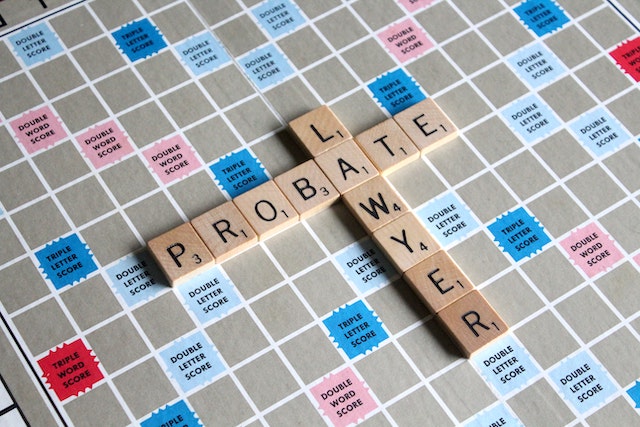PROBATE ADMINISTRATION ATTORNEY

What Is Probate?
Probate court handles the administration of a person's estate when that person passes away. Administration of an estate involves making sure creditors of the estate are paid and the distribution of the estate's assets. For purposes of probate, an estate is any property that a person owns solely in their name at the time of death.
Probate is deadline-driven. This means that if you become a personal representative of the estate, you must follow procedures in a timely manner. You also must take proper steps in order to avoid having a creditor try to recover any debts of the estate from you personally.
Probate can be a lot to deal with while you are grieving the loss of a loved one. Our Probate Administration attorney in Shelby Township and Royal Oak, Michigan is here to help you navigate through this often time-consuming and stressful process.
Common Examples Where Probate Is Necessary.

Selling Your Loved One's Home.
A common example of a probate case is where someone is the only owner of a piece of property at the time of their death. The family wishes to sell the property to pay for the funeral expenses of their loved one. But, the family cannot sell the property if their name is not on the deed as an owner of the property. Now, what do you do? We invite you to contact our office to discuss the specifics of your situation.
Gaining Access To Your Loved One's Bank Accounts.
Your loved one has passed away. They named you as the beneficiary of their estate in their will. Or maybe they didn't have a will but you are the only living relative. You try to go to the bank to access their bank account. You even show the bank the will and explain you are the only living relative. But, the bank says you cannot have access to that money without the proper paperwork. Now what? Contact our office to set up a meeting to discuss the specifics of your situation.

Probate Administration Frequently Asked Questions
What Does A Probate Lawyer Do For You?

Probate Administration Attorney Colleen Hubbs
Probate is the process of managing the affairs of a decedent’s estate. Through this process, a Personal Representative will be appointed to handle the decedent’s assets and debts. Probate of a decedent’s estate may require administration, litigation or both. It is the job of a probate lawyer to guide the personal representative through the probate process.
The focus of our practice is probate administration. Probate administration involves making sure that all creditors of the estate are properly notified and that their claims against the estate are handled in accordance with Michigan Law. Our firm will make sure that all steps are taken to protect the personal representative from being held personally accountable for any unpaid claims against the estate. Our office will also assist with making sure all assets are distributed properly and that administrative tasks such as filing taxes and selling a decedent’s home are done timely and correctly. This guidance reduces the stress for a personal representative who may be unfamiliar with the probate process.
Probate litigation involves disputes over the decedent’s estate. Our office is not currently taking on probate litigation cases. However, we do have a strong referral network in this area and would be happy to refer you to a probate litigation attorney if needed.
The probate process has many required procedures and deadlines. The matter may be resolved by estate administration alone or may require litigation. In either case, hiring a probate lawyer to guide the personal representative provides a benefit that reduces stress for the personal representative and ensures that the estate is managed in compliance with Michigan Law.

Should I Hire A Probate Attorney?
There are many technical issues to deal with in probate administration that may be difficult to navigate without an attorney. For example, would it be better to file an informal or a formal probate? Who can serve as personal representative of the estate? What do I do if there are not enough assets in the estate to pay all of the creditor’s claims?
There are a number of other common questions that I hear as a probate administration attorney. One example is what do I do if my loved one passes away with a will? Another common inquiry is what happens to the assets of my loved one if they did not have a will when they died? A very prevalent issue is when the decedent owned a house, and now the family would like to sell or transfer it to a new owner.
A probate administration attorney can help guide you through both the technical issues and the case specific questions. Hiring an attorney will help mitigate the stress of trying to understand the ins and outs of probate administration while grieving the loss of a loved one. This will provide relief to the surviving family members and friends of the decedent.
When Should You Hire A Probate Lawyer?
Hiring a probate lawyer is really a matter of choice that depends on one’s comfort level in dealing with the court system. It also depends on the confidence of the proposed personal representative in their ability to understand and comply with all probate procedures. While it is possible to “DIY” a probate case, the benefit of hiring a probate lawyer often outweighs the potential problems that may arise when a probate attorney is not hired. Taking on a probate case yourself may lead to greater expense and prolonged time to resolve the probate estate.

Common pitfalls in a probate case when an attorney has not been hired include missing important deadlines. There are strict time frames as to when interested parties are to be notified and how they are to be notified of certain issues. There are also deadlines for when case related documents are required to be filed. Missing a document filing deadline could result in the personal representative having to come to court to explain why the document was not timely filed.
A personal representative’s failure to properly address a debt could be costly and could result in a lawsuit against the estate or even the personal representative personally. There is a hierarchy when paying the debts of an estate. The payment of a lower priority debt that is paid prior to and to the exclusion of a higher priority debt could lead to costly problems for the personal representative.
A personal representative also may not be familiar with statutory distributions that may be available to interested parties. These statutory distributions may be considered a higher priority than certain debts. If a personal representative does not properly distribute the estate to the heirs or interested parties then the personal representative may find themselves in front of a judge trying to explain why the distribution statutes were not followed.
Probate rules can be complex and become even more complex as the value of an estate grows. The size of the estate is proportionate to the risk of the potential error in administering an estate. Such errors can be costly and time consuming. A probate attorney should be hired in order to avoid costly mistakes and extended time to resolve the estate.

What Assets Do Not Go Through Probate?
This question is perhaps easier to answer by stating what assets do go through probate. Any asset that is solely owned in the decedent’s name at the time of his or her death will need to be probated. Other assets that may go through probate are those that do not name or improperly name designated beneficiaries.
A home is an asset that is often owned solely in the decedent’s name. Without proper estate planning, this asset will need to be probated. This is true even if the decedent is married, has a surviving spouse and the surviving spouse’s name is not on the deed. Under this circumstance, the home could not be sold to a third party or transferred to the surviving spouse without opening a probate case. A bank account that is owned only in the name of the decedent is also subject to probate.
An example of a designated beneficiary asset is a life insurance policy. A Life insurance policy and other designated beneficiary assets generally avoid having to be probated. However, if a designated beneficiary is no longer living at the time of the decedent’s death or the designated beneficiary is a minor then probate may be necessary.
One of the factors in determining whether an asset is required to be probated is how the asset is titled or owned. Assets such as a home or bank account that are solely owned by the decedent will need to be probated in most cases. Designated beneficiary assets generally are not required to be probated.
How Does A Probate Attorney Get Paid?
Our office charges a hourly rate for probate cases. There are many different issues and variables that may arise in each probate case. Thus, it is often difficult to determine how much time we will need to invest in a case from start to finish.
In a probate case, where an attorney is representing a personal representative, attorney fees are considered an administrative expense. As such, they are included in the highest priority to be paid out of the estate’s assets. Attorney fees and other administrative costs paid out of pocket by a personal representative are reimbursable to the personal representative out of the assets of the estate.
The information on this page is not intended to be legal advice nor is it intended to form an attorney client relationship. An attorney client relationship is formed only when an engagement agreement has been signed by both attorney and prospective client and fees for services have been paid.
TESTIMONIALS
Our Reviews

Mr Hubbs was always well prepared managed our expectations with potential outcomes and answered any question quickly. He was fair and just in his pricing and made the experience for my daughter as a 1st time attorney user a comfort able and good learning experience for her. He is excellent in every way I would highly recommend him.
Cynthia

Mr. Hubbs has done a wonderful job representing my family and I in our case. He has been consistent and is great with communicating his findings. He knows the law and has been very resourceful. I would highly recommend him to anyone.
-------

I’ve been a Real Estate Broker for 35 years-dealt with many attorneys and Andrew came highly recommended. I will use no one else. There are those individuals you cant say enough about.I have referred him to a number of my clients who have called and thanked me. They were so impressed with Andrew, but more impressed with the outcome. He’s one excellent lawyer.
Eliot

Timely, efficient, organized. Everything was explained well and all of my questions were answered. You kept me well informed and walked me thru many steps I had no understanding of. I am a dentist. One thing both of us have in common is that no one likes to deal with our professions. It was a pleasure dealing with you. Correspondence was timely and complete. She was thorough from beginning to end. I would highly recommend Sterling Heights probate attorney Colleen.
Jeffrey

You informed me of all of my choices and were very friendly. You made me feel very comfortable. I was very impressed and satisfied with Colleen Hubbs. She was very knowledgeable about both wills and trusts. She made me feel comfortable about the decisions I had to make. Colleen made sure I had everything I needed including funeral wishes, medical power of attorney and much more. Thank you so very much Colleen.
Ethlyn

Top of his Profession! Mr. Andrew Hubbs is a outstanding professional. Mr. Hubbs handled a very high-profile case and was hardworking, informative, and would touch base to let me know what was going on. He truly knows his trade and I would recommend him to anyone that wants a hardworking, devoted professional. Not only would I call him my attorney but a friend too. Keep up the good work Andrew and Thank you again.
